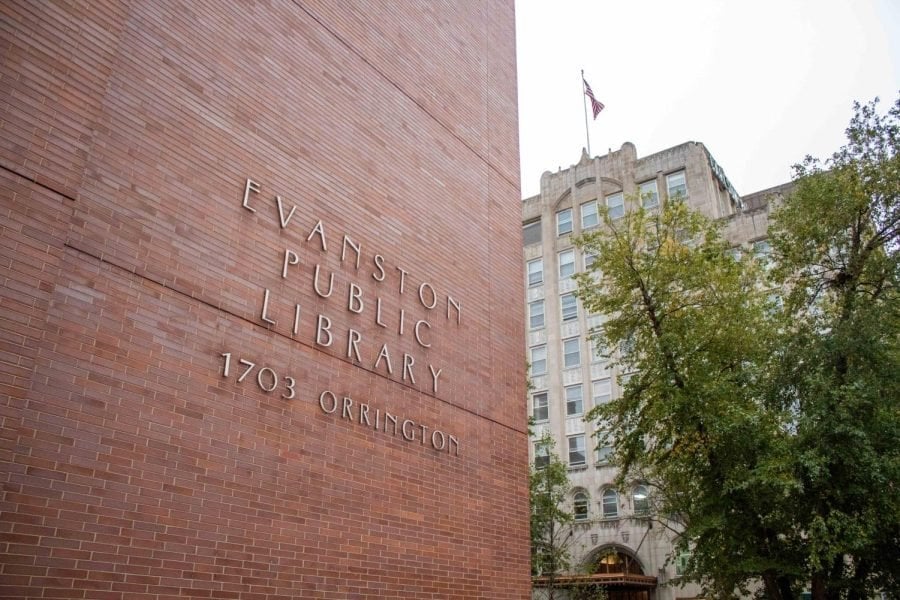Evanston Public Library releases acknowledgement of Indigenous Land
Daily file photo by Madison Smith
This is the second time in three days that EPL locations have been evacuated due to bomb threats.
November 18, 2022
Evanston Public Library hosted its first land acknowledgement Wednesday, recognizing that both Evanston and the library’s facilities lie on lands of Indigenous people.
The acknowledgement, published on the library’s website, will now be read aloud at the start of all events and programs.
“We acknowledge and honor the original people of this land, as well as the Indigenous people that still call this area home and support their continued work for justice, self-determination, and sovereignty,” it begins.
The acknowledgement recognizes that Evanston’s land was home to the Potawatomi, Odawa and Ojibwe Tribes –– also known as the Council of the Three Fires –– and served as a meeting place for many other Indigenous tribal nations including the Ho-Chunk, Illinois, Inoka, Kickapoo, Miami, Menominee, Peoria and Sac and Fox Nations.
The acknowledgement took months of work. EPL worked with Jasmine Gurneau, the director of Native American and Indigenous Affairs at the Office of Institutional Diversity and Inclusion at Northwestern, to write the statement.
Library board president Tracy Fulce said she’s proud the library has taken this first step to recognizing and acknowledging Indigenous peoples in Chicagoland. According to the library, Chicagoland is home to the third-largest urban Indigenous population in the U.S.
“Fulfilling the Library’s mission to be the hub of our diverse community requires a commitment to supporting the assets in our community, building and sustaining new and existing relationships and opportunities for social and cultural learning,” Fulce said in the news release.
In the press release, the library said it will continue to expand its partnerships with Native American groups and organizations to amplify Indigenous voices in its programming and collections.
EPL provides more information about Native and Indigenous history, current issues and literature on its Native and Indigenous Resources page.
“We honor Indigenous protocol, and remind ourselves and our community that land acknowledgements do not exist in the past tense,” the acknowledgement reads.
Email: [email protected]
Twitter: @shannonmtyler
Related Stories:
— NAISA celebrates Indigenous Peoples Day with sunrise and sunset gatherings
— Combatting erasure: How to craft a Land Acknowledgement on Northwestern’s campus


